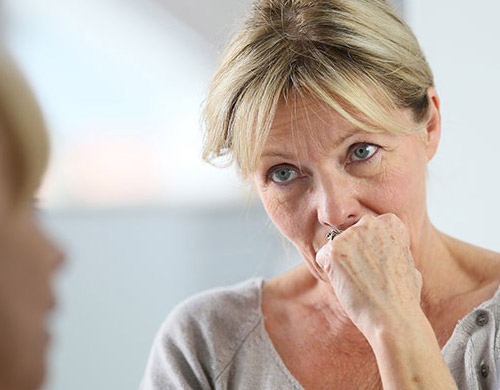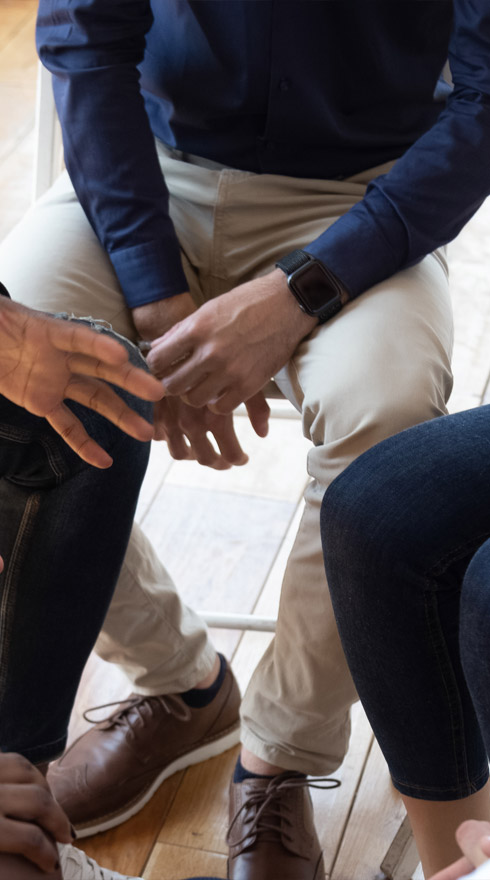When you or someone you care about has an alcohol or drug problem you may find it difficult to address. By using professional treatment services it is possible to treat dependence just like other diseases and achieve long term recovery.
We will explain how a sober future is possible for you or someone you care about if an integrated treatment method is utilized.
What is Addiction Rehab (Rehabilitation)?
Addiction ‘rehabilitation’ refers to the process of medical treatment and therapy to address your dependence on drugs such as recreational drugs, prescription drugs and alcohol. Addiction Rehab is most effective when it is tailored to your individual needs and incorporates a medically-supervised detox, inpatient and outpatient programs, as well as aftercare support.

Facts & Statistics about Addiction in Oceanside
Prevalence of Substance Use Disorder, by Drug Type
(IN THOUSANDS)
- 2,7578.5%Any Substance
- 2,0886.4%Alcohol
- 1,0683.3%Ilicit Drugs
- 2060.6%Pain Medication
Drug- and Alcohol-Induced Deaths by Age Group, California, 2016
- Alcohol-Induced
- Drug-Induced
- 18 to 250.5
- 9.6
- 26 to 354.3
- 13.9
- 36 to 6424.2
- 22.9
- 65+23.7
- 9.4
Drug Use, by Selected Type and Age Group California, 2015 to 2016
- 12 to 17
- 18 to 25
- 26+
- Marijuana*13.2%
- 34.0%
- 13.5%
- Misuse of Pain Medications3.5%
- 8.0%
- 4.3%
- Cocaine0.8%
- 7.2%
- 1.8%
- Heroin0%
- 0.4%
- 0.2%
What are the treatment options available in Oceanside?
Identifying and healing the primary causes behind your drug or alcohol addiction can be achieved through an holistic treatment program. Even though symptoms of addiction need to be overcome, life skills will also be encouraged in order to focus on the primary causes of your addiction issues.

Private Residential Programs
When you stay at the property where you are receiving therapy, you are taking part in a residential treatment program. Its main benefit is that you will receive holistic treatment and support 24-hours a day. If you reside at a treatment facility you are away from most of the stressors in your home environment that may worsen your substance use.
Finishing your residential treatment program and avoiding relapse is far easier if you remain in a safe and controlled environment. Clients who struggle with dual diagnosis, co-occurring illnesses and severe dependencies are recommended to enroll for an inpatient rehab program. Sobering up is achievable if you take part in a residential treatment program, but if you wish to maintain it you are going to need to face up to the challenges that come with the early stages of recovery. Upon completion of your residential addiction treatment, you have to consider what you’d like from your new life, as you work towards becoming more independent.
Do You Need Help?
Our addiction advisers are here to help you.

Sober Living Programs
Sober living treatment programs are designed to help you to have more stability in your life, with guidance and a support structure. These programs comprise of:
- A house manager who visits you regularly
- Supporting you on the best way to behave in recovery
- Fostering important friendships with others in recovery who can empathize with your experiences
Outpatient Programs
Outpatient rehab programs offer greater flexibility as you can continue with work commitments and live at home, but you visit the rehab center for any treatments.
Outpatient programs provide you with:
- Education focusing on your drug or alcohol misuse
- Talking therapy and counseling by means of group sessions and individual sessions with a skilled addiction specialist. – Outpatient programs should run from three months to over a year, and your individual needs will determine the necessary duration of treatment.
Detox Only Programs
The need for detoxing a substance from your system is the first phase towards rehab, because it eliminates traces of the substance and puts an end to your physical dependence. As your body becomes accustomed to not the substance it was dependent on, you will start to experience withdrawal symptoms.
This is the beginning of the recovery process, following which you will start to tackle the root causes of your addictive behavior to avoid a repeat of those same cycles. Once alcohol or drugs have been eliminated from your system you may notice some cravings for it, as well as some withdrawal symptoms for a period afterwards. You can lessen the chances of relapse by developing coping skills for long-term recovery success.
Paying for Private Treatment
If you want to pursue private rehab, you can fund treatment yourself or claim through your healthcare policy Most insurance companies contribute to at least part of the costs associated with drug and alcohol rehab, such as a medically-managed detox, rehab therapy and medication, as well as post-treatment support. The total amount you can claim will be determined by your policy rules and your provider. We always suggest that you confirm the amount covered for treatment prior to enrolling in rehab.
You can visit our Verify Your Insurance page for more details on the cover that is available to you. If you prefer not to claim against your private health insurance, you have to pay for your treatment with your own funds. Some treatment centers may offer a payment plan to individuals who are unable to pay the full cost of rehab.
State Funded Programs
State-funded rehabilitation programs are recommended to people who want to address a substance or alcohol addiction but have limited funds to enroll in a program. Using stipends from a combination of state, federal and Medicaid budgets, these treatment programs help to remove hurdles to rehab by offering:
- Medically-managed detoxes
- Treatment programs and extended support
State-funded treatment programs offer relief to people with little to no disposable income or private healthcare policies. In order to qualify you will need to provide information regarding:
- Proof of living arrangements
- Proof of income
- Medical history and details around your addiction
- Proof that you can legally live in the US
https://www.grants.gov/ provides all the info necessary to start the application process. Check out this booklet to find contact details of your state agency.

The following state-funded addiction rehab programs are available in Oceanside:
Mental Health Systems Inc Family Recovery Center
1100 Sportfisher Drive, Oceanside, CA 92054
760-439-6702
www.mhsinc.org/Mission Treatment Servs of Oceanside Mission Treatment Services Oceanside
1905 Apple Street, Suite 3, Oceanside, CA 92054
760-450-9854
acadiahealthcare.comNorth County Lifeline Inc Oceanside
707 Oceanside Boulevard, Oceanside, CA 92054
760-726-4900
www.nclifeline.org
Maintaining Addiction Recovery in Oceanside
When you leave treatment, you may need some time to adjust to your new life. At the rehab center the environment was safe and you had professional support. After leaving the rehab center you may encounter unanticipated challenges that you are not prepared for. Long term sobriety is more difficult to maintain when you have had a severe dependency and do not have social support when you leave rehab. Relapse is a possibility without the right aftercare and support groups to help you navigate your new life.
The following AA/NA meetings are available in Oceanside:
Oceanside Pier
Open: Old Coast Hwy., Oceanside, California 92056
MONDAY: 7:00 PM
https://meetings.intherooms.com/Treatment Center
Open: 2821 Oceanside Boulevard # 2, Oceanside, California 92054
TUESDAY: 7:00 PM
https://meetings.intherooms.com/CA - Monday Night Madness
Speaker Meeting and In Person:
503 Vista Bella, Oceanside, CA 92057
Monday: 6:30-7:45 pm
https://casandiego.org/meetings
Aftercare & Alumni Programs
Aftercare programs extend your rehab program once you return to your daily life. As many as 60% of people in recovery will relapse because of the unpredictable challenges in life, so enrolling in aftercare programs can improve your chance of long-term recovery success.
Once you get close to the end of your rehab program, you will consider the treatment services most beneficial to you long-term, and an aftercare program will be created to help you sustain from drinking or taking drugs. Clients who complete their drug or alcohol treatment programs will have access to an alumni community program such as ours, which provides you the chance to engage with staff and others in early recovery. You will gain access to mentorship and support from other people in recovery, and take part in other Alumni events. This gives you an ideal opportunity to reciprocate and offer support other individuals in recovery.
Support Groups (Fellowship Meetings)

Support groups are a vital resource because they integrate social structures into addiction recovery. The 12-step model is maintained by support groups like Alcoholics Anonymous (AA) and Narcotics Anonymous (NA) which have continued helping people in recovery by holding group meetings. During support group meetings, other members will share their stories and empower others. Through companionship and committing to the programme, those in recovery can feel empowered to take responsibility for themselves and protect those that love them most.
Support for Families & Children Affected by Addiction
Everyone living in a family with addiction issues are affected, in different ways, by its impact. The individual with the addiction issues needs support, but other family members need support and guidance too. By joining family support groups, you will manage stress more efficiently, and be able to support your loved one recovering from addiction. Your family may benefit from support groups such as:
- Parents of Addicted Loved Ones
- SMART Recovery Family & Friends
- NAMI Family Support Groups
- Al-Anon
- Families Anonymous
- Alateen
- Nar-Anon










